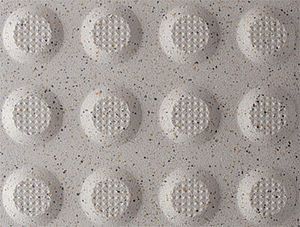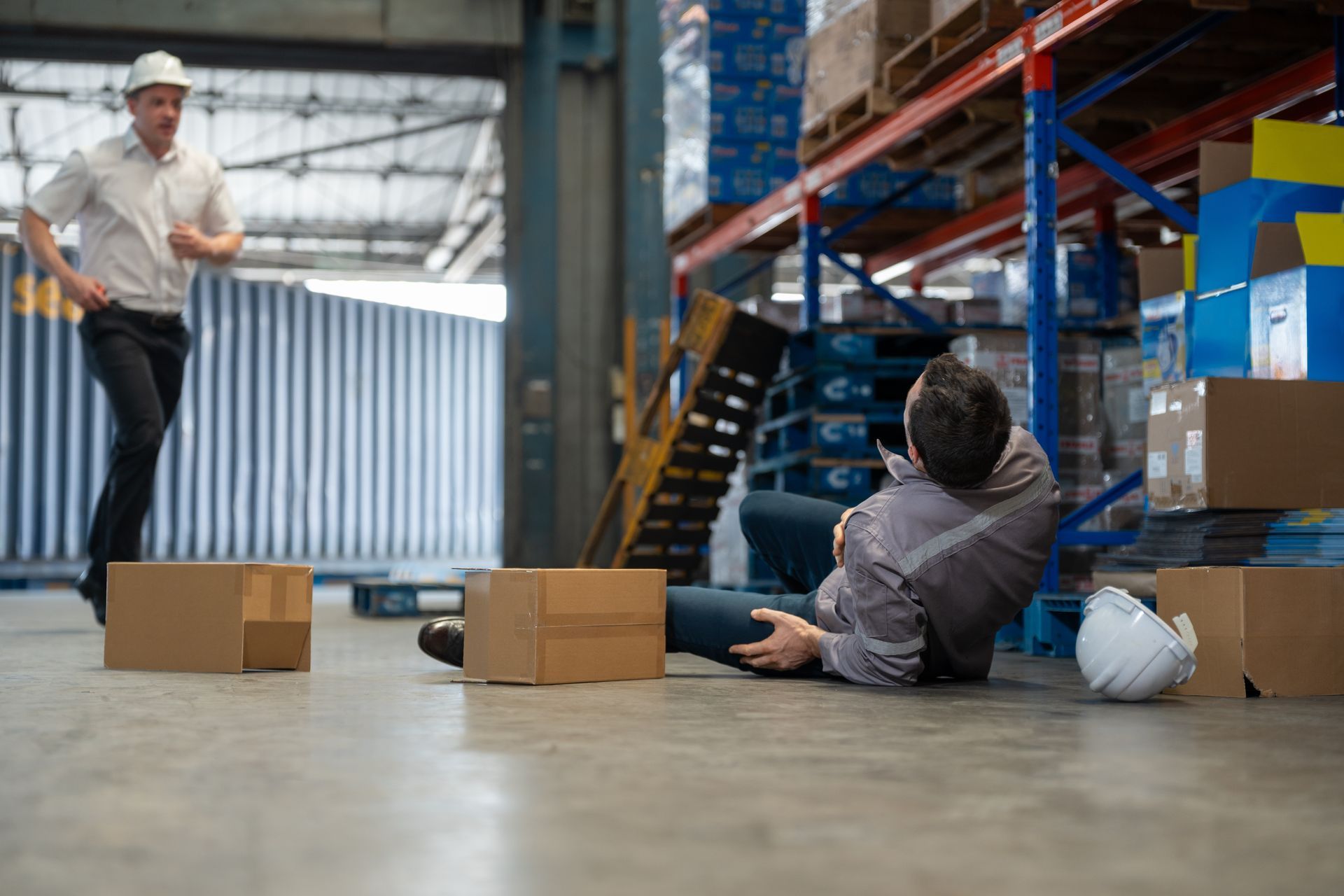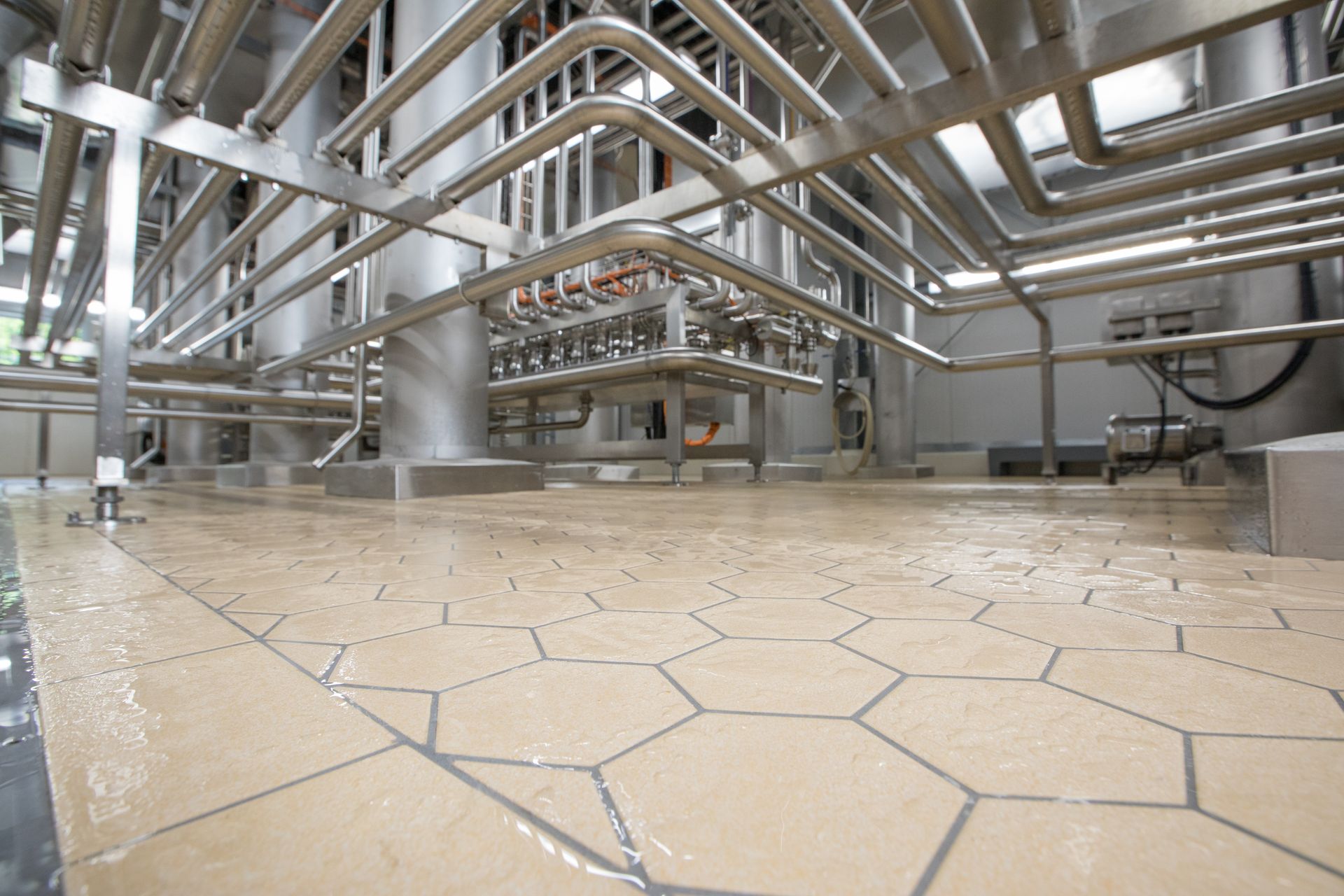Best Floor Tile Materials for Your Industrial Space
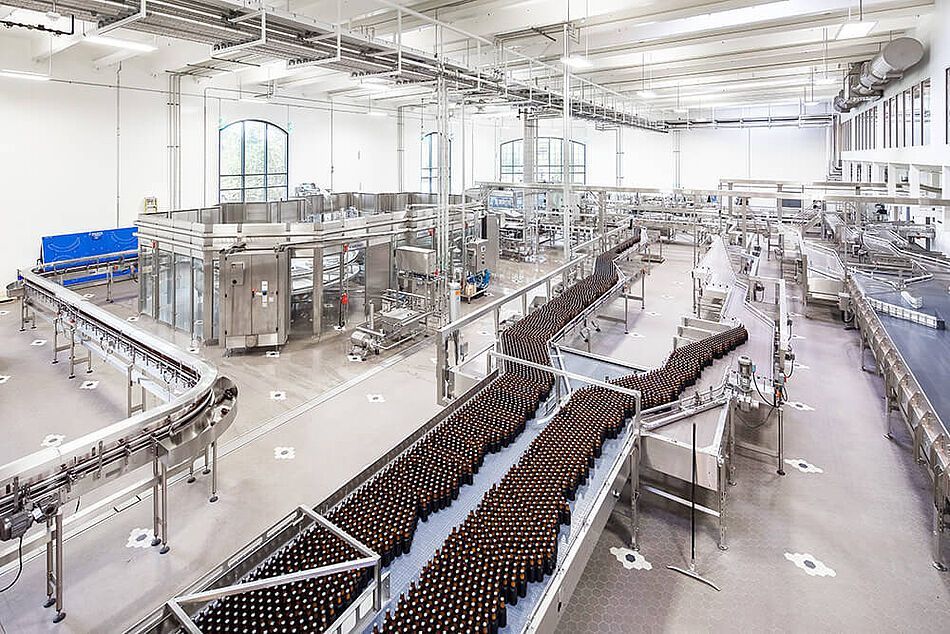
Choosing the right flooring for an industrial facility is essential to ensure safety, efficiency, and long-term durability. Industrial environments such as factories, processing plants, and service centers place unique demands on flooring. These include exposure to heavy loads, chemicals, and rigorous cleaning protocols.
Different tile materials offer varying levels of strength, resistance, and maintenance requirements. Understanding these differences can help you select a floor that performs reliably and meets the needs of your operation.
This guide highlights the best tile options for industrial use and what makes them effective in demanding settings.
Key Factors in Industrial Flooring Selection
When evaluating floor tile materials for an industrial setting, it’s important to consider performance under real-world conditions. The right tile should not only withstand daily stress but also contribute to a safer and more efficient workspace.
Durability
Industrial floors must support constant wear from
foot traffic, forklifts, pallet jacks, and machinery. A suitable tile material should have high compressive strength and impact resistance to prevent cracking or surface wear. Fully vitrified ceramic tiles, for example, are engineered to handle extreme pressure without degrading over time.
Slip Resistance
Workplace safety is a top priority, especially in environments where water, oil, or other fluids may be present. Tiles with a textured surface or
anti-slip finish provide better traction and help reduce the risk of slips and falls. It’s important to choose a tile with the appropriate slip rating for your specific conditions.
Chemical & Stain Resistance
Many industrial facilities handle corrosive substances or chemical byproducts. Tiles must resist staining and surface breakdown when exposed to oils, acids, or cleaning agents. Non-porous tile bodies, such as those found in fully vitrified tiles, prevent seepage and maintain surface integrity under chemical exposure.
Ease of Maintenance
Industrial operations require flooring that can be cleaned quickly and thoroughly. The best tile materials are compatible with mechanical scrubbers and harsh cleaning agents without losing their finish. Tight grout joints and a smooth surface also help prevent buildup and reduce cleaning time.
Common Industrial Tile Materials
Industrial flooring must meet strict performance standards, and selecting the right material depends on your facility’s specific needs. Below is a breakdown of common tile options used in industrial spaces, with a focus on their strengths and limitations.
Fully Vitrified Ceramic Tiles
Fully vitrified tiles are among the most reliable options for industrial flooring. Their dense, nonporous structure resists water, chemicals, and stains, making them ideal for demanding environments. These tiles offer high compressive strength and are well-suited for areas with heavy equipment and rolling loads. When paired with epoxy grout and narrow joints, they also support hygiene and easy cleaning.
Best for: Automotive workshops, food and beverage plants, laboratories, and chemical processing facilities.
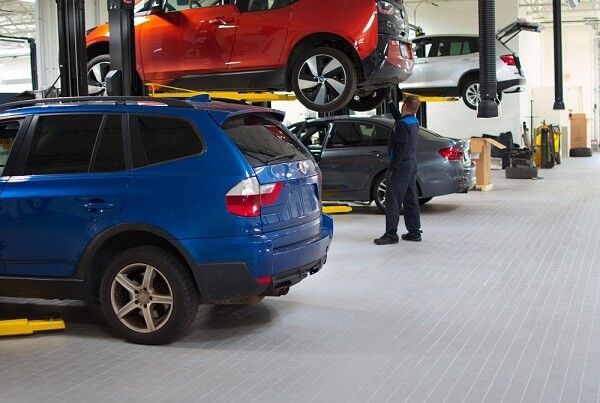
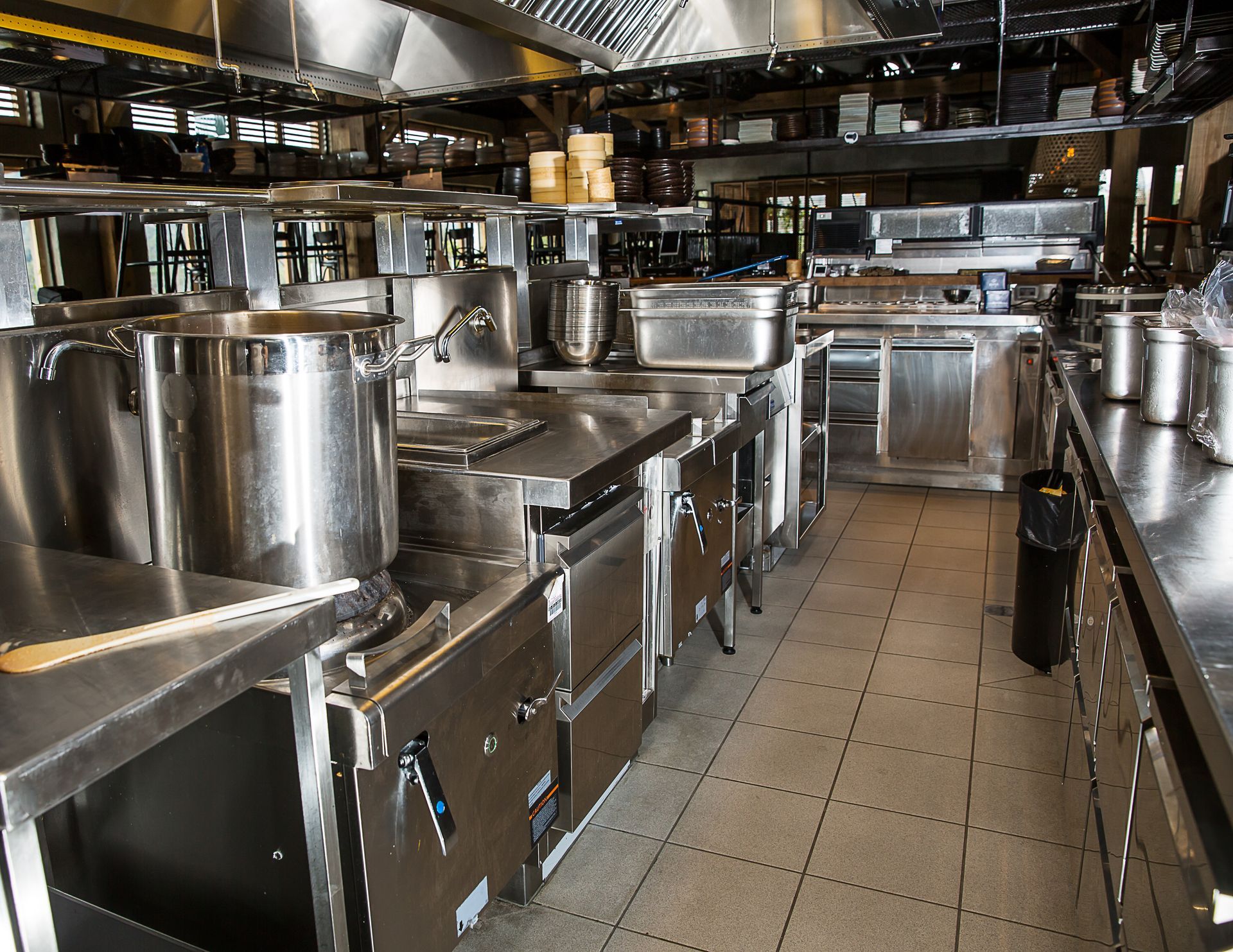
Quarry Tile
Quarry tiles are made from natural clay and fired at high temperatures, providing decent strength and slip resistance. While commonly used in commercial kitchens, they are less resistant to chemical exposure and may require more maintenance in high-impact or corrosive environments. Their slightly porous surface can also retain moisture if not sealed properly.
Best for: Light-duty industrial kitchens or storage areas without chemical exposure.
Epoxy Flooring
Epoxy is known for its chemical resistance and seamless installation. While not tiles in the traditional sense, these systems offer smooth surfaces with minimal joints, ideal for cleanrooms or pharmaceutical spaces. However, they can be prone to cracking under thermal or impact stress and may require resurfacing over time.
Best for: Laboratories, cleanrooms, and light-duty chemical processing areas.
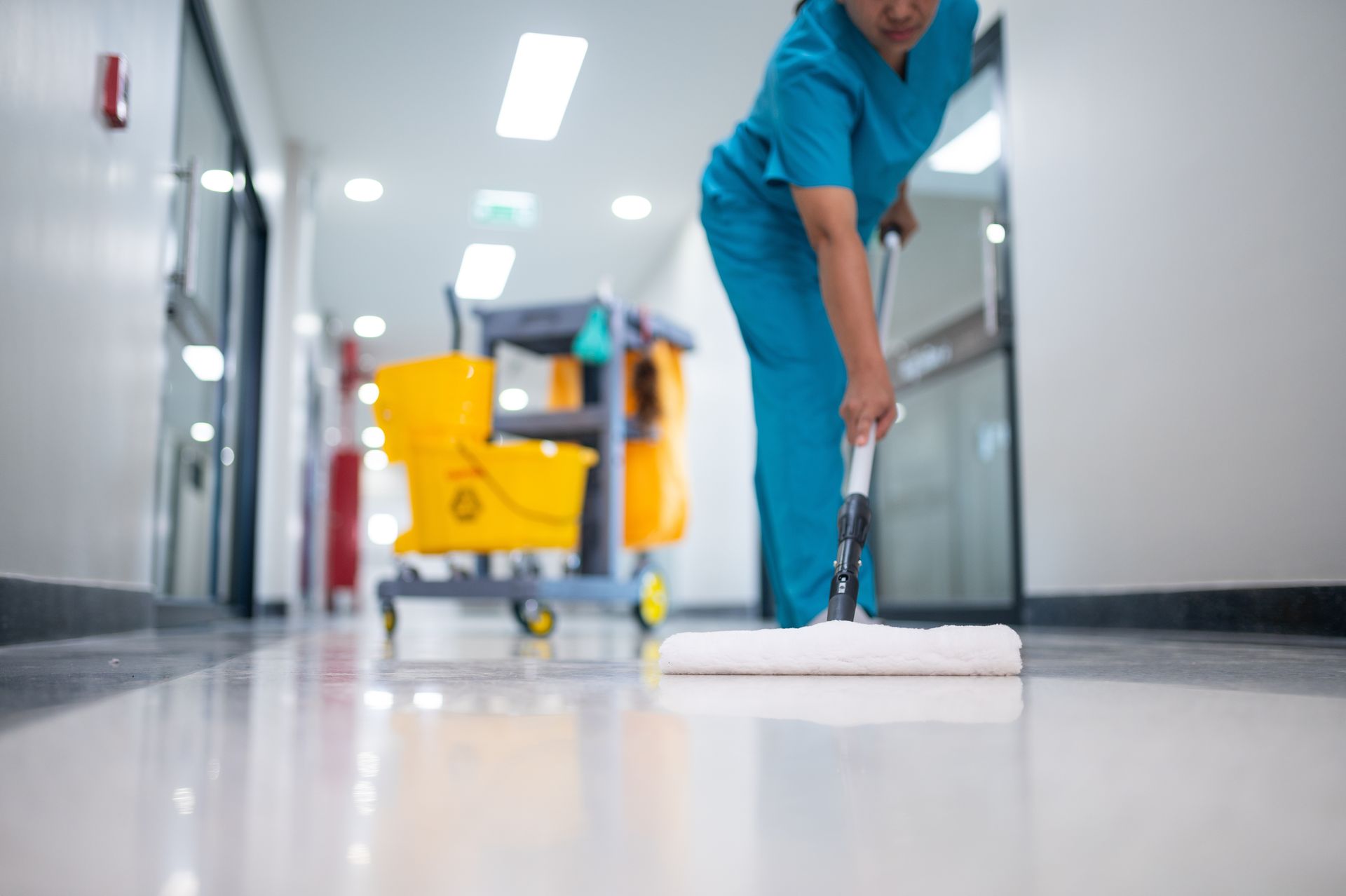
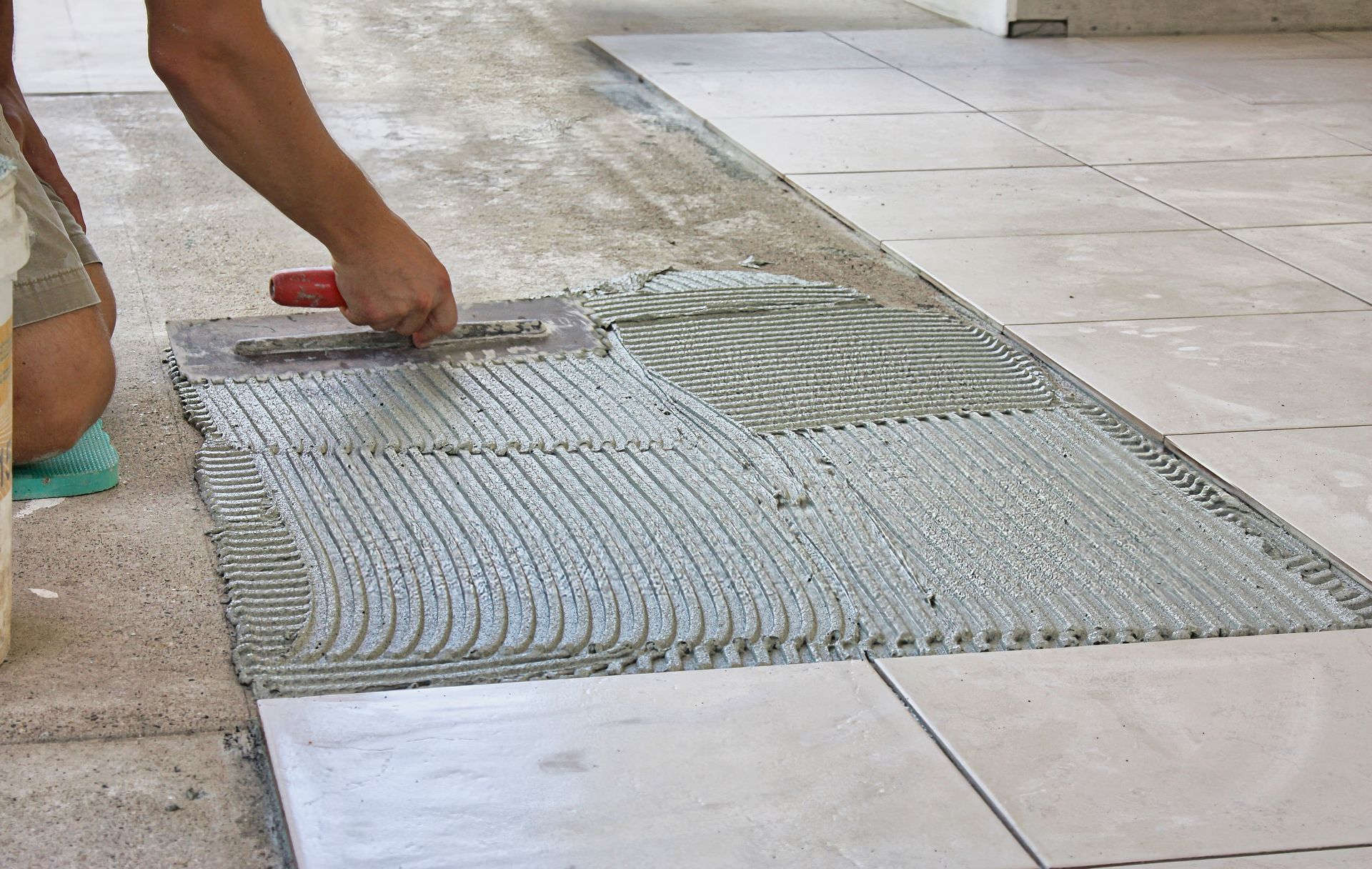
Concrete with Tile Overlay
Using ceramic or porcelain tiles as an overlay on a concrete subfloor combines the structural support of concrete with the surface durability of tile. This method is cost-effective and offers flexibility in tile selection, including anti-slip finishes or chemical-resistant options. However, proper installation is critical to avoid delamination or water infiltration.
Best for:
General manufacturing, loading docks, and mixed-use industrial spaces.
Rubber or Vinyl Tile
Rubber and vinyl tiles are flexible, relatively easy to install, and offer basic slip resistance. However, they lack the strength and longevity of ceramic options and are not recommended for high-impact or chemical-intensive environments. These tiles may deform under weight or degrade over time with exposure to solvents.
Best for: Light-duty storage rooms or areas focused on ergonomic comfort rather than durability.
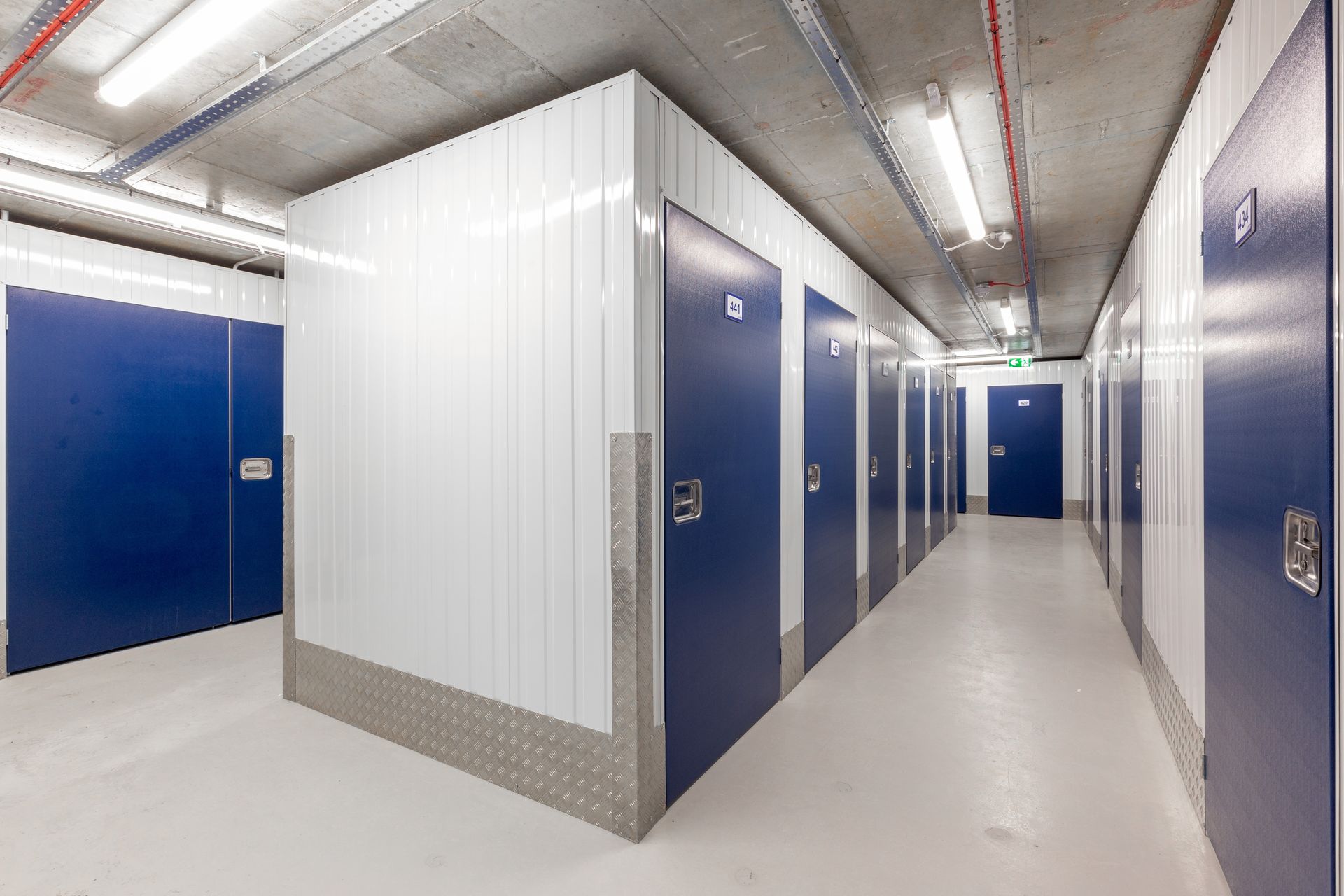
Why Fully Vitrified Ceramic Tiles Stand Out
Among industrial tile options, fully vitrified ceramic tiles offer a level of performance that consistently outpaces alternatives. Engineered through high-temperature firing, these tiles form a dense, nonporous body that excels in strength, safety, and longevity.
High Compressive Strength:
Vitrified tiles are built to endure heavy loads from equipment, vehicles, and foot traffic. Their exceptional compressive strength resists cracking and surface wear, making them a reliable choice for facilities where durability is non-negotiable.
Low Water Absorption:
The fully vitrified structure results in an absorption rate below 0.5%, preventing water, oil, and chemicals from penetrating the surface. This reduces the risk of contamination, mold growth, and grout degradation—critical factors in labs, food processing areas, and chemical plants.
Chemical and Stain Resistance:
These tiles maintain integrity under exposure to acids, solvents, and industrial cleaners. This makes them ideal for environments with frequent chemical spills or aggressive cleaning protocols.
Slip-Resistant Surface Options:
Many vitrified tiles come with textured finishes or added grit for improved traction. This supports workplace safety by reducing the likelihood of slips, even when surfaces are wet or contaminated.
Easy Maintenance:
Fully vitrified tiles are compatible with auto-scrubbers, steam cleaning, and acidic washing agents. Their nonporous surface prevents soil buildup, and narrow grout joints make them easier to clean than other flooring systems.
Aesthetic Longevity:
Unlike coated or soft-surface alternatives, vitrified tiles do not fade, delaminate, or wear unevenly. Their baked-on finishes maintain color and texture over years of heavy use, making them a practical yet professional choice for visible areas such as showrooms or commercial facilities.
With a proven track record in high-demand environments, fully vitrified ceramic tiles deliver unmatched performance and long-term value.
Key Takeaways
Choosing the right tile material for your industrial space is about more than just durability—it’s about aligning performance with the specific demands of your environment. Whether you're managing a chemical plant, automotive facility, warehouse, or cleanroom, your flooring must support safety, efficiency, and longevity.
Evaluate your needs. Consider load-bearing capacity, chemical exposure, slip hazards, and hygiene requirements.
Understand material differences. While options like quarry tile and epoxy have specific advantages, fully vitrified ceramic tiles offer the broadest benefits across performance, safety, and maintenance.
Think long-term. Vitrified tiles may require a greater upfront investment, but they deliver significant cost savings through reduced repairs, extended lifespan, and minimal maintenance.
Fully vitrified ceramic tiles stand out as a smart, future-proof choice for demanding industrial spaces. When properly installed with the right grout and cleaning protocols, they provide a flooring system that performs reliably for years.
For tailored guidance on your next flooring project, request a consultation with Argelith’s expert team or explore our engineered tile options to find the right fit for your industry.

